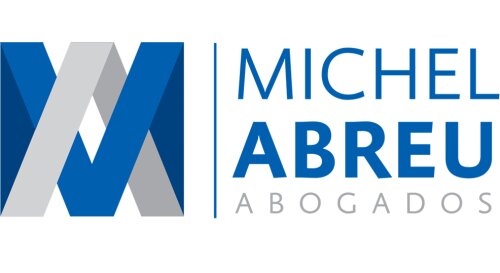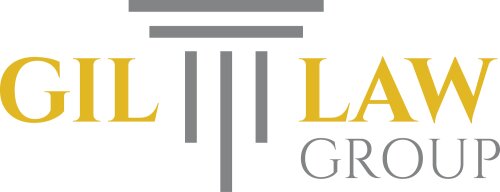Best Banking & Finance Lawyers in Punta Cana
Share your needs with us, get contacted by law firms.
Free. Takes 2 min.
List of the best lawyers in Punta Cana, Dominican Republic
About Banking & Finance Law in Punta Cana, Dominican Republic
Punta Cana, located in the Dominican Republic, is not only a popular tourist destination but has also emerged as a significant hub for banking and finance in the Caribbean. The local banking and finance sector is governed by both Dominican laws and international financial regulations, providing a mix of domestic opportunities and challenges for investors, businesses, and individuals. Banking services are well-established with both local banks and international financial institutions operating in the area. The financial sector in Punta Cana is buoyed by the country's economic growth and increasing foreign investments, thus necessitating a comprehensive understanding of banking and finance laws for anyone engaging in these activities.
Why You May Need a Lawyer
There are several situations where individuals and businesses may require legal assistance in the field of banking and finance in Punta Cana:
- Engaging in complex financial transactions that may involve local and international laws.
- Setting up corporate banking accounts or managing financial operations in the Dominican Republic.
- Navigating compliance with Dominican financial regulations and anti-money laundering laws.
- Addressing disputes with banks or financial institutions.
- Investing in real estate or other sectors where financial and banking laws are applicable.
- Dealing with financial fraud or scams.
Legal expertise can offer crucial guidance in effectively managing these situations and mitigating risks.
Local Laws Overview
The legal framework regulating banking and finance in Punta Cana is primarily derived from the national laws of the Dominican Republic. Key aspects include:
- Monetary and Financial Law: This serves as the foundation for banking operations and is enforced by the Superintendence of Banks, responsible for banking regulation and oversight.
- Foreign Investment Law: Governs the conditions under which foreign investments can be made in the Dominican Republic, influencing financial transactions and activities.
- Anti-Money Laundering Regulations: A set of controls aimed at preventing money laundering and ensuring transparency in financial transactions.
- Banking Law: Covers the establishment and functioning of banks and financial institutions, addressing issues like capital adequacy, lending practices, and customer protection.
Frequently Asked Questions
What types of banks operate in Punta Cana?
Both local banks and branches of international banks operate in Punta Cana, providing a range of services from personal banking to corporate finance.
Do I need to be a resident to open a bank account in Punta Cana?
Non-residents can open bank accounts in the Dominican Republic, but they may be subject to different regulations and requirements.
What are the steps to establish a business in Punta Cana?
Establishing a business involves registering the company, opening a corporate bank account, and complying with local financial regulations, where a lawyer’s expertise is invaluable.
How does the Dominican Republic tax foreign income?
Foreign income taxation in the Dominican Republic can vary, and it's advisable to consult with a legal or tax professional for specific details concerning taxation.
Is it safe to invest in real estate in Punta Cana?
Real estate can be a lucrative investment, but it’s essential to perform due diligence and understand the legalities, where professional advice is beneficial.
What are the common financial scams in Punta Cana?
Financial scams can include fraud in real estate, investment schemes, and phishing attacks. Awareness and legal counsel can significantly reduce the risk of becoming a victim.
Can foreigners secure loans in Punta Cana?
Foreigners can secure loans, but the terms and availability may depend on factors like residency status and creditworthiness, making legal advice crucial.
What is the role of the Superintendence of Banks?
The Superintendence of Banks supervises the Dominican banking sector, ensuring compliance with financial regulations and protection of depositors.
How do I resolve a dispute with a bank in Punta Cana?
Legal recourse is available for banking disputes, and arbitration or mediation may be viable options. Consulting a lawyer specializing in banking law is advised.
What documentation is needed to transfer funds internationally?
Documentary requirements might include identity verification and proof of the source of funds, with specific regulations depending on the bank involved.
Additional Resources
For further information and assistance, consider reaching out to the following resources:
- Superintendence of Banks: Provides oversight and regulation of the banking industry in the Dominican Republic.
- Dominican Republic Board of Investment and Export: Information and guidance on foreign investments and associated financial matters.
- Local Chambers of Commerce: Can offer insights into the business climate and facilitate networking with legal professionals.
Next Steps
If you require legal assistance in banking and finance in Punta Cana, consider the following steps:
- Research and identify law firms in Punta Cana with a specialization in banking and finance law.
- Prepare any relevant documents or information related to your banking or financial issues.
- Schedule consultations to discuss your situation, evaluate the lawyer's experience, and understand their fee structure.
- Engage a lawyer who best meets your needs and can provide targeted legal solutions for your specific circumstances.
Lawzana helps you find the best lawyers and law firms in Punta Cana through a curated and pre-screened list of qualified legal professionals. Our platform offers rankings and detailed profiles of attorneys and law firms, allowing you to compare based on practice areas, including Banking & Finance, experience, and client feedback.
Each profile includes a description of the firm's areas of practice, client reviews, team members and partners, year of establishment, spoken languages, office locations, contact information, social media presence, and any published articles or resources. Most firms on our platform speak English and are experienced in both local and international legal matters.
Get a quote from top-rated law firms in Punta Cana, Dominican Republic — quickly, securely, and without unnecessary hassle.
Disclaimer:
The information provided on this page is for general informational purposes only and does not constitute legal advice. While we strive to ensure the accuracy and relevance of the content, legal information may change over time, and interpretations of the law can vary. You should always consult with a qualified legal professional for advice specific to your situation.
We disclaim all liability for actions taken or not taken based on the content of this page. If you believe any information is incorrect or outdated, please contact us, and we will review and update it where appropriate.
Browse banking & finance law firms by service in Punta Cana, Dominican Republic
Punta Cana, Dominican Republic Attorneys in related practice areas.










